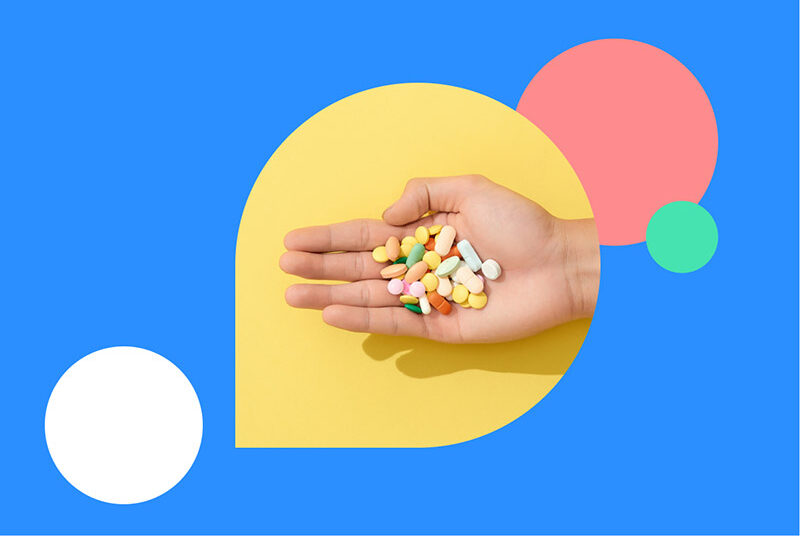Depression is a serious mental illness. It can impact all aspects of a person’s life. Duloxetine (Cymbalta) is a medication that has been approved by the FDA to treat depression. It works by affecting certain chemicals in the brain that are involved in mood control. In this blog post, we will discuss how duloxetine works. And what to expect when taking it for depression.
Contents
How Does Duloxetine Works?
 Duloxetine is a selective serotonin and norepinephrine reuptake inhibitor (SSNRI). It works by increasing the levels of these neurotransmitters in the brain. It’s thought to work by inhibiting the reuptake. Or re-absorption, of serotonin and norepinephrine into neurons.
Duloxetine is a selective serotonin and norepinephrine reuptake inhibitor (SSNRI). It works by increasing the levels of these neurotransmitters in the brain. It’s thought to work by inhibiting the reuptake. Or re-absorption, of serotonin and norepinephrine into neurons.
This action leaves more of these important chemicals. In the spaces between neurons. Where they can be active and boost mood. Duloxetine is different from other antidepressants. That works on serotonin because it also affects norepinephrine levels.
Norepinephrine is another neurotransmitter that’s thought to play a role in depression. As well as pain perception, stress response, and blood pressure control.
Uses Of Duloxetine
Duloxetine can be used to treat major depressive disorder. Also, generalized anxiety disorder, and diabetic nerve pain. Duloxetine is also sometimes used to treat pain. And, chronic tension headaches.
Furthermore, the uses of this medication are not just limited to adults. Duloxetine can also be prescribed for children.
However, there are some people that should not take this medication. So, it is important to consult with your doctor. It is used to treat various disorders. Such as:
- Major Depressive Disorder.
- Generalized Anxiety Disorder.
- Diabetic Nerve Pain.
- Pain.
- Chronic Tension Headaches.
- Fibromyalgia Syndrome.
- Sleep Quality Improvement.
- Decreased Pain Symptoms in Chronic Fatigue Syndrome.
Duloxetine is a medication that belongs to the class of drugs. That is called serotonin and norepinephrine reuptake inhibitors (SNRIs). It works by increasing the levels of serotonin and norepinephrine in the brain. It can help relieve symptoms of depression to a great extent.
Dosage Information
 There are certain criteria to follow. Your doctor will start you on a low dose and gradually increase it over several weeks.
There are certain criteria to follow. Your doctor will start you on a low dose and gradually increase it over several weeks.
- The usual starting dose is 30 mg once daily.
- Cymbalta can be taken with or without food.
- If you miss a dose, take it as soon as you remember.
- But if it’s close to the time for your next dose, skip the missed dose and continue with your regular schedule.
- Do not double up on doses.
- Some people find that they need to take 60 mg per day.
- The doctor may adjust your dosage as needed. But no more than 120 mg should be taken in one day.
- The maximum recommended duration of treatment is 12 weeks.
If you have been taking Cymbalta for some time. And want to stop, your doctor can help you wean off safely. But, never withdraw duloxetine suddenly. It may cause some serious problems.
Benefits Of Duloxetine
There are many benefits to taking duloxetine for depression. Some of these benefits include:
- Improved mood.
- Increased energy levels.
- Reduced anxiety and stress levels.
- Better sleep quality.
- Improved concentration and focus.
- Reduced cravings for alcohol and drugs.
- Increased self-esteem and confidence.
If you are considering taking duloxetine for depression. It is important to speak with your doctor about all of the potential risks and benefits.
Additionally, it is very beneficial for people who seek counseling or therapy. This can help them work through their depression in a healthy way. And, learn coping mechanisms.
If you are struggling with depression, know that you are not alone and there is help available. Speak with your doctor about duloxetine and other treatment options to find what will work best for you.
Things To Avoid While Taking Duloxetine
 More possibly, there are some things which should be taken care of. Duloxetine is a crucial drug. And should be taken with proper prescription and care. Though it is not very common. But some people may experience an increase in suicidal thoughts or actions. If you are facing such problems, discontinue the use of duloxetine immediately.
More possibly, there are some things which should be taken care of. Duloxetine is a crucial drug. And should be taken with proper prescription and care. Though it is not very common. But some people may experience an increase in suicidal thoughts or actions. If you are facing such problems, discontinue the use of duloxetine immediately.
Things that should be avoided during this medication. Such as:
- Alcohol
- Grapefruit juice
- Certain painkillers like ibuprofen and aspirin.
Also, it is important to continue taking Duloxetine for as long it has been prescribed. Even if you are feeling better. Stopping the medication suddenly might cause some unpleasant side effects.
What To Expect From Duloxetine?
It seems a big question. What can you expect from duloxetine? The honest answer depends on the individual. There are many factors that come into play. Including a person’s general health, lifestyle, and severity of symptoms. However, there are some general things you can expect from this medication.
Duloxetine helps to restore the balance of serotonin and norepinephrine in the brain. Serotonin is known as the “happy hormone”. Because it plays a role in mood, while norepinephrine is involved in alertness and energy levels. By restoring this balance, duloxetine can help to improve mood. And reduce feelings of fatigue or low energy.
Usually, it takes a few weeks for duloxetine to start working. Some people may experience an improvement right away. While others may need more time to see results.
Duloxetine is available as a pill that you swallow whole. It’s important to take it at the same time each day. And drink plenty of fluids while taking it. Since it can cause dehydration. Duloxetine can also interact with other medications. So be sure to tell your doctor about all the medications you’re taking.
Side Effects Of Duloxetine (Cymbalta)
 Likewise every medication, duloxetine has also some side effects. These are usually mild. And go away as your body gets used to the drug. However, if they are bothersome or do not go away. Then, consult your doctor
Likewise every medication, duloxetine has also some side effects. These are usually mild. And go away as your body gets used to the drug. However, if they are bothersome or do not go away. Then, consult your doctor
The most common side effects of duloxetine include:
- Nausea
- Dry mouth
- Sleepiness or fatigue
- Diarrhea
- Constipation
- Upset stomach
- Decreased appetite
- Insomnia – This is less common but can be a problem for some people.
However, if you experience any of these. Or more serious side effects. Seek medical help right away:
- Thoughts of suicide or harming yourself.
- Chest pain or a racing heartbeat.
- Severe dizziness or fainting spells.
- Tremors or muscle twitches.
- Unusual swelling or bruising.
Headache is also a possible side effect. But it is seen less frequently than the others. Finally, some people experience sexual dysfunction while taking duloxetine. This includes problems with orgasm, decreased sex drive. And erectile dysfunction.
Again, these symptoms usually improve over time. If they become bothersome or problematic for a long time. Speak to your doctor about them.
Alternatives For Duloxetine
The medication is suitable for everyone. So it is important to have alternatives.
- One alternative is nortriptyline. It’s a tricyclic antidepressant that can help with nerve pain and improve sleep.
- Another option is bupropion. Which helps increase dopamine levels in the brain. This may be beneficial for people who have depression and ADHD.
- Finally, there’s fluoxetine (Prozac). That is a serotonin reuptake inhibitor. It has been shown to be effective in treating depression.
There are other options as well except medication.
- One alternative is therapy. This can include cognitive-behavioral therapy, interpersonal therapy, or dialectical behavior therapy.
- Another option is electroconvulsive therapy. This involves passing electrical currents through the brain to cause a seizure. This treatment is usually used for people who haven’t responded to other treatments.
- Lastly, there are supplements that may be helpful. These include omega-three fatty acids, probiotics, and vitamin D.
Treatment can be varied but the results should be the same. It does not matter whether a person is using medication. Or therapies to improve. The thing that matters is improved mental health.
Duloxetine is one medication used to treat depression. But it’s not the only option. There are other medications, therapies, and supplements that can also be effective. Talk to your doctor about what might be right for you.
Conclusion
To conclude, duloxetine is a highly effective antidepressant. It can provide significant relief from the symptoms of depression. It works by increasing the levels of serotonin and norepinephrine in the brain. That ultimately helps to improve mood. And overall outlook on life.
The drug typically takes two to four weeks to start working. But the benefits continue long after it’s stopped. Duloxetine may cause some side effects. But in most cases, are mild and temporary. Overall, duloxetine is a safe and well-tolerated medication that can be very helpful for people with depression.
If you’re considering taking duloxetine for your depression. Discuss with your doctor whether it’s right for you. They can help you weigh the pros and cons of the medication. And make sure that you’re taking it safely and effectively.
A Word From Therapy Mantra
Your mental health — Your psychological, emotional, and social well-being — has an impact on every aspect of your life. Positive mental health essentially allows you to effectively deal with life’s everyday challenges.
At TherapyMantra, we have a team of therapists who provide affordable online therapy to assist you with issues such as depression, anxiety, stress, workplace Issues, addiction, relationship, OCD, LGBTQ, and PTSD. You can book a free therapy or download our free Android or iOS app.


